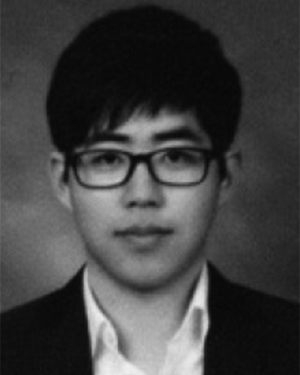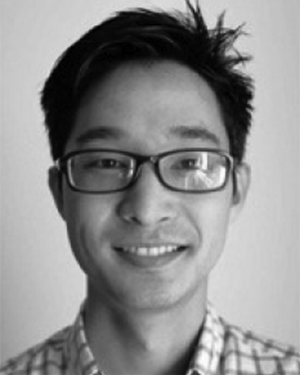Abstract:
The goal of this research is to articulate and test a new hybrid Augmented Reality (AR) environment for conceptual understanding. From the theoretical lens of embodied in...Show MoreMetadata
Abstract:
The goal of this research is to articulate and test a new hybrid Augmented Reality (AR) environment for conceptual understanding. From the theoretical lens of embodied interaction, we have designed a multi-user participatory simulation called ARfract where visitors in a science museum can learn about complex scientific concepts on the refraction of light through full-body immersion using optical see-through AR glasses, projection-based AR, and gesture technology. In particular, we developed two different types of simulations for ARfract, namely a game-based simulation and a non-game simulation to explore how the order of different AR simulations influences the perceived usability, user behaviors, learning experiences, and learning outcomes. For the experiment, 10 dyads were randomly assigned to one of the two experimental conditions: 1) the game-to-non-game condition and 2) the non-game-to-game condition. The results indicate that the learners who experienced the game-based simulation before the non-game simulation performed better than did the other group with the reversed experience order. This paper also reports the usability, user behaviors, and learning experience issues regarding the affordances of hybrid AR technologies. The major contribution of this proof-of-concept research is that it articulates our understanding of how particular configurations (i.e., order) of the emerging technologies (i.e., hybrid Augmented Reality systems) and its use can lead to different learning outcomes.
Published in: IEEE Transactions on Learning Technologies ( Volume: 11, Issue: 1, 01 Jan.-March 2018)
Funding Agency:

Pohang University of Science and Technology, Pohang, Gyeongsangbuk-do, KR
Seung Jae Oh received the BSc degree in electrical engineering from
the Pohang University of Science & Technology. She is a doctoral student in the Department of Creative IT
Engineering, Pohang University of Science & Technology, Korea. Her research focuses on exploring the affordances
of emerging technologies from human-computer interaction perspectives.
Seung Jae Oh received the BSc degree in electrical engineering from
the Pohang University of Science & Technology. She is a doctoral student in the Department of Creative IT
Engineering, Pohang University of Science & Technology, Korea. Her research focuses on exploring the affordances
of emerging technologies from human-computer interaction perspectives.View more

Ewha Womans University, Seoul, KR
Hyo-Jeong So received the PhD degree from Instructional Systems
Technology, Indiana University. He is an associate professor in the Department of Educational Technology, Ewha Womans
University, in Korea. His research work focuses on how to integrate emerging technologies for teaching and learning
from seamless learning and knowledge building perspectives.
Hyo-Jeong So received the PhD degree from Instructional Systems
Technology, Indiana University. He is an associate professor in the Department of Educational Technology, Ewha Womans
University, in Korea. His research work focuses on how to integrate emerging technologies for teaching and learning
from seamless learning and knowledge building perspectives.View more

Department of Technology and Society, Incheon, Korea
Matthew Gaydos received the PhD degree in curriculum and instruction
from the University of Wisconsin Madison, USA. He is an assistant professor with SUNY - Korea. His work
focuses on improving game design for education, government policy, and the use of game-based media in science, and
civic educationcontexts.
Matthew Gaydos received the PhD degree in curriculum and instruction
from the University of Wisconsin Madison, USA. He is an assistant professor with SUNY - Korea. His work
focuses on improving game design for education, government policy, and the use of game-based media in science, and
civic educationcontexts.View more

Pohang University of Science and Technology, Pohang, Gyeongsangbuk-do, KR
Seung Jae Oh received the BSc degree in electrical engineering from
the Pohang University of Science & Technology. She is a doctoral student in the Department of Creative IT
Engineering, Pohang University of Science & Technology, Korea. Her research focuses on exploring the affordances
of emerging technologies from human-computer interaction perspectives.
Seung Jae Oh received the BSc degree in electrical engineering from
the Pohang University of Science & Technology. She is a doctoral student in the Department of Creative IT
Engineering, Pohang University of Science & Technology, Korea. Her research focuses on exploring the affordances
of emerging technologies from human-computer interaction perspectives.View more

Ewha Womans University, Seoul, KR
Hyo-Jeong So received the PhD degree from Instructional Systems
Technology, Indiana University. He is an associate professor in the Department of Educational Technology, Ewha Womans
University, in Korea. His research work focuses on how to integrate emerging technologies for teaching and learning
from seamless learning and knowledge building perspectives.
Hyo-Jeong So received the PhD degree from Instructional Systems
Technology, Indiana University. He is an associate professor in the Department of Educational Technology, Ewha Womans
University, in Korea. His research work focuses on how to integrate emerging technologies for teaching and learning
from seamless learning and knowledge building perspectives.View more

Department of Technology and Society, Incheon, Korea
Matthew Gaydos received the PhD degree in curriculum and instruction
from the University of Wisconsin Madison, USA. He is an assistant professor with SUNY - Korea. His work
focuses on improving game design for education, government policy, and the use of game-based media in science, and
civic educationcontexts.
Matthew Gaydos received the PhD degree in curriculum and instruction
from the University of Wisconsin Madison, USA. He is an assistant professor with SUNY - Korea. His work
focuses on improving game design for education, government policy, and the use of game-based media in science, and
civic educationcontexts.View more


